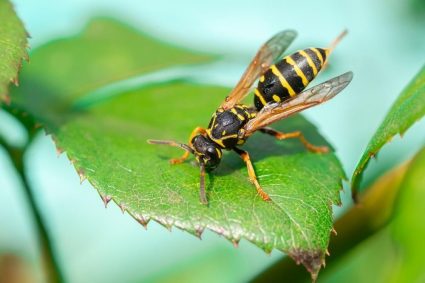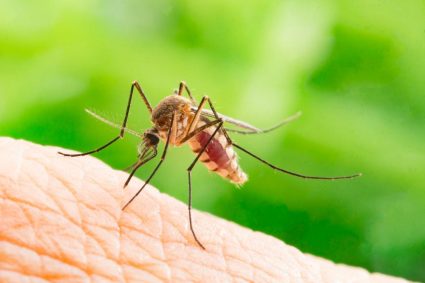
Gardening is a rewarding and therapeutic activity. However, the joy of gardening can be short-lived when uninvited guests, such as mice and rabbits, start to nibble on your plants. Here’s an all-in-one guide on how to keep these furry intruders out of your garden and protect your plants.
To keep mice and rabbits out of your garden, use physical barriers like fences or raised garden beds, apply organic pest deterrents or natural repellents, and plant herbs and flowers that these critters dislike. You can also set up traps to catch and release them, or encourage their natural predators to help control their populations. It’s important to start early and be consistent to keep your garden safe.
Recognizing the Signs of Mice and Rabbits Infestation
Before we delve into the solutions, let’s first understand the signs of an infestation. Mice and rabbits leave distinctive signs in your garden:
- Droppings: Mice droppings are typically the size of a grain of rice, while rabbit droppings are round and brown.
- Gnawed Areas: Mice tend to gnaw on food packets and woodwork, while rabbits will cause clean-cut damage on leaves, stems, and flowers.
- Holes and Burrows: Mice create burrows in warm groundcover. Rabbits, on the other hand, may dig around shrubs and flower beds.
- Strong Odour: Mice have a strong-smelling urine that leaves a musky, ammonia-like odour behind.
- Nesting Materials: Mice use materials like shredded paper, fabric, or dried plant matter for their nests. Rabbits may create nests in shrubs and outbuildings.
- Tufts of Fur: Rabbits may leave tufts of fur caught on branches or buildings.
- Signs of Digging: Rabbits may dig around shrubs and flower beds, leaving upturned soil.
If you notice any of these signs, it’s time to take action.
Effective Ways to Deter Mice and Rabbits
Physical Barriers
One of the most effective ways to keep out these critters is by using physical barriers. Here are a few methods:
- Fencing: Install a fence around your garden using chicken wire or hardware cloth with a mesh size of 1 inch or smaller. Bury the fence at least 6 inches below the ground to prevent rabbits from digging underneath. For mice, use a quarter-inch hardware cloth to keep even the smallest mice out.
- Raised Garden Beds: Use raised garden beds with a rodent barrier at the bottom, such as a quarter-inch hardware cloth.
- Mesh Covers: Place fine wire mesh or netting over your garden beds to protect your plants from mice and rabbits.
Organic Pest Deterrents
Use pest deterrents that emit unpleasant scents for mice and rabbits, making your garden less attractive to them. MouseX® rodenticide and Fresh Cab Botanical Rodent Repellent are excellent options.
Companion Planting
Plant herbs and flowers that mice and rabbits dislike, such as mint, rosemary, lavender, and garlic. These plants not only deter pests but also add to the aesthetic appeal of your garden.
Natural Repellents
Natural repellents like peppermint oil, cayenne pepper, or ammonia can deter mice. For rabbits, try sprinkling plants with red pepper, garlic and onion powder, or talcum powder.
Trapping
Set up live traps baited with fresh vegetables or fruit to catch and release rabbits safely away from your garden. The Havahart 1083 Catch and Release Small 1-Door Easy Set Humane Live Animal Trap is a great option.
Encouraging Natural Predators
Finally, encouraging natural predators like hawks, foxes, snakes, and owls to remain active in your yard or neighborhood can help control rabbit populations.
Conclusion
You don’t have to let mice and rabbits ruin your garden. By using these methods, you can effectively keep these critters out and protect your plants. Remember, prevention is always better than cure. Start early, and keep your garden safe. Happy gardening!
Frequently Asked Questions
What other plants can I use for companion planting to deter mice and rabbits?
Other plants that you can use for companion planting include daffodils, marigolds, and alliums. These plants have strong scents that are unattractive to mice and rabbits.
How often should I apply natural repellents?
Natural repellents like peppermint oil, cayenne pepper, or ammonia should be applied once a week. However, if it rains, you may need to reapply them more frequently as rain can wash them away.
Can I use any kind of fencing to keep mice and rabbits out of my garden?
The best type of fencing to keep mice and rabbits out is one made of chicken wire or hardware cloth with a mesh size of 1 inch or smaller. This prevents the critters from squeezing through the fence. Also, ensure the fence is buried at least 6 inches below the ground to prevent digging under.
Where should I release trapped rabbits?
Trapped rabbits should be released at least a mile away from your property to prevent them from returning. Ensure the release site has sufficient vegetation for the rabbits to feed on.
Are there any risks to encouraging natural predators in my yard?
Encouraging natural predators can be beneficial for pest control, but it’s important to remember that these predators are wild animals. Some predators, like foxes and snakes, can pose risks to pets and small children. Always exercise caution and consult with local wildlife services if you’re unsure.









